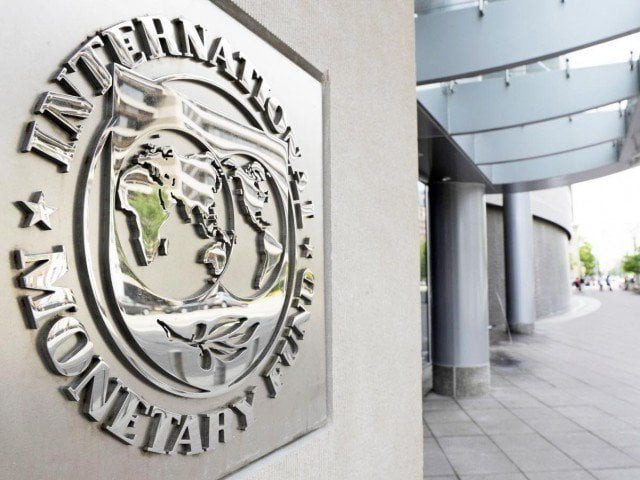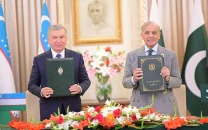Govt admits differences persist with IMF
State minister reveals foreign lender has reservations over subsidies for energy sector

The government has admitted that there were “differences with the International Monetary Fund (IMF) on several issues”, causing a delay in the ninth review of Pakistan’s economic performance under a 36-month programme supported by an Extended Fund Facility arrangement.
Minister of State for Finance Ayesha Ghaus Pasha on Friday briefed the National Assembly Standing Committee on Finance about the progress made so far in the talks with the IMF, clarifying that the programme was not suspended.
Pakistan entered a $6 billion IMF programme in 2019, which was increased to $7bn earlier this year. The programme’s 9th review is currently pending, with remote talks being held between IMF officials and the government for the release of $1.18 billion.
Pakistan and IMF had a round of engagement on November 18 but could not finalise a schedule for formal talks on the overdue ninth review. The talks, originally due in the last week of October, were rescheduled to Nov 3 and then kept on facing delays following gaps in estimates by the two sides.
Pasha told the committee meeting, chaired by Qaisar Ahmad Sheikh, that the negotiations with the global lender were ongoing at the ministerial level for a technical review of the programme. “I will talk frankly about the IMF. There is difference of opinion between Pakistan and the IMF on many issues. The IMF has reservations over subsidies for the energy sector as the government kept selling petrol cheaper than the purchase price.”
Read more: Dar says matters regarding IMF's ninth review 'completed'
“The previous government increased the circular debt while on its way out. Now, difficult decisions will have to be taken because $20 billion will not decent from above,” she added.
“The IMF programme has not been suspended and discussions are taking place at the ministry level and technical review is being carried out.”
Securing the IMF tranche is crucial to unlock funding from bilateral and multilateral partners, as the country’s forex reserves stand are critically low.
The foreign exchange reserves held by the State Bank of Pakistan (SBP) continued their declining spree witnessing a minor outflow of $15 million to $6.70 billion during the week ending Dec 9 compared to a whopping $784m drop recorded in the preceding week, announced the central bank on Thursday.
The critical condition of SBP’s reserves was obvious from the fact it declined by $11bn during a year. In Dec 2021, the central bank’s reserves were $17.686bn which now stood at $6.7bn.
During the meeting, State Bank of Pakistan (SBP) Governor Jameel Ahmed admitted that businesses were facing problems but stressed that all the issues were being resolved in consultation with the business community and the commerce ministry.
Also read: Pakistan fails to impress IMF on revenue plan
The governor said that there was a $23 billion debt and a $10 billion current account deficit. “In the current financial year 2022-23, we have to pay $33 billion,” he said, adding that in the current fiscal, $6 billion debt had been returned while $4 billion debt had been rolled over.
“Negotiations are underway to roll over $8.3 billion commercial loans, while commercial loans worth $1.1 billion will have to be repaid,” he continued. Overall, he added, instead of $13 billion, “we have to repay the loans of $4.5 billion”.
The central bank chief told the committee that this fiscal year, the country had received loans of $4 billion, while another $4 billion loans were in the pipeline. “There is a possibility of getting loans of $18 to 19 billion in the current financial year.”
'Credibility gap'
It is pertinent to note here that earlier this week Finance Minister Ishaq Dar had admitted that there was a “credibility gap” between the IMF and Islamabad.
After agreeing “on a roadmap [with the IMF], your country and the previous government chose not to implement [the agreed conditions] and reversed what they had done earlier. “That has created a credibility gap.”
Due to this, the IMF now wanted the government to share with them plans for the next three quarters, he revealed and added that the global lender also required the government to demonstrate how it would meet the needs of $16bn for flood reconstruction and rehabilitation.



















COMMENTS
Comments are moderated and generally will be posted if they are on-topic and not abusive.
For more information, please see our Comments FAQ